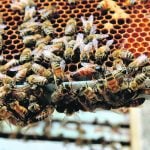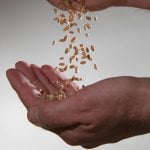GENEVA — The decade-long Doha Round of World Trade Organization negotiations is stalled and only can be salvaged by a new approach, says the Cairns Group of agricultural exporting countries.
“The Doha Round is at an impasse,” Craig Emerson, Australian trade minister and Cairns chair, told a Dec. 15 news conference. “We need a new model to develop a realistic path forward.”
The sombre assessment about the state of the Doha Round came as ministers from WTO member countries gathered in a cavernous conference centre in Geneva to try to figure out a way forward. The meeting adjourns Dec. 17 with WTO director general Pascal Lamy almost certainly proclaiming that the round has a new direction and a new beginning.
It has been his consistent message through 10 years of negotiating failure.
The Doha mandate includes a call for more trade rules reform, reduced protectionism, science-based decisions on import rules and increased emphasis on food security for poor countries.
Emerson said the new model could involve “breaking the round into more manageable parts rather than waiting for a grand bargain.”
It would mean allowing negotiators to break specific issues out of the overall agenda and reach provisional or even permanent deals that could be implemented.
This piecemeal approach would break with the traditional WTO insistence that there is no deal on anything until there is a deal on everything. At a number of negotiations during the past decade, the all-or-nothing approach allowed disagreements on agriculture to scuttle deals in other trade areas.
But Emerson insisted allowing side deals would not isolate agriculture as one of the tougher negotiating areas where deals are less likely.
He said some agricultural issues are “ripe” for an early harvest of agreements that fall short of an overall deal, although he did not provide a list of likely candidates.
They could include agreements to fight protectionism, for example, or to implement the 2005 agreement to end export subsidies by 2013. Agreements on the thornier issues of market access or reductions in domestic support are less likely.
“We must find a way to deliver the agriculture mandate of the Doha Round,” said a statement issued by Cairns members after an early morning meeting at the WTO conference centre.
“If we wait for the grand bargain, we’ll be waiting for a long time,” Emerson added. “The consensus was that agriculture must remain at the heart of the Doha Round.”
Cairns is a 19-member group of developed and developing countries, with Canada as a founding member, that was created 25 years ago to try to get agriculture into the global trade agreement. It was formed at a meeting in Cairns, Australia during a European Union-United States agricultural export subsidy war that was depressing prices, distorting markets and sideswiping grain exporters like Canada and Australia.
In recent years, Canada has been at odds with other Cairns members over the issue of whether supply management protections should be broken down as undesirable protectionism.
Australia has been leading the charge to have the group call for a reduction in all protective tariffs.
Canada has consistently refused to endorse Cairns communiqués that contain the call for across-the-board tariff cuts.










